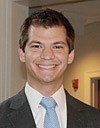Parashat Nitzavim continues Moses’s final address to the entire Israelite community in which he instructs the Israelites to adhere to the Torah and avoid worshipping idols. Toward the end of this parashah, Moses utters one of the most famous passages in Torah in which he stresses the accessibility of our sacred texts:
It is not in the heavens, that you should say, “Who among us can go up to the heavens and get it for us and impart it to us, that we may observe it?” Neither is it beyond the sea, that you should say, “Who among us can cross to the other side of the sea and get it for us and impart it to us, that we may observe it?”[1]
The commentators discuss the implications of the Torah being close at hand, rather than in the heavens above or beyond the seas. The fourth-century scholar Rav Hama acknowledges the accessibility of the Torah, but argues, “If it would be in heaven, you would be obliged to go up after it.”[2] According to Rav Hama, the Torah is so priceless that, even if it were difficult to acquire, we would nevertheless be required to exert the necessary effort to obtain it. An alternative perspective comes from the 15th-century Talmudist Rabbi Elijah Mizrachi, who states, “If the Torah were in heaven, no man could bring it down to teach it. You must conclude that the text does not mean that we would have to go up to heaven to get it, if the Torah was there.”[3] According to Mizrachi, our resources are finite and there are certain things—such as ascending the heavens—that we cannot do, no matter how desperately we want to nor how precious the object of our quest.
Fundamentally, Rav Hama and Rabbi Mizrachi are debating the question of how hard the Israelites should have to work in order to procure the Torah. I see this debate reflected today in attitudes toward social justice work, specifically around the question of how hard marginalized and oppressed people should work in order to bring about their liberation. Rav Hama’s perspective is represented by those on one extreme who argue that, no matter how difficult it may be, poor and marginalized people are the only ones who can help themselves, and any aid simply perpetuates a cycle of dependency. The other extreme sees such populations as totally helpless and unable to function without outside assistance. Similar to Rabbi Mizrachi’s view, those who hold this perspective would argue that expecting these populations to work to achieve their own liberation is unreasonable.
Of course, there is middle ground. Marginalized people in the developing world do need assistance, but assistance does not mean a handout, nor does it mean that they are incapable of participating in their own development. I saw this balanced approach take shape in the community of Ker Daouda Cisse, a small village in Senegal that I visited in 2011 as a member of AJWS’s Rabbinical Students’ Delegation. Alongside other students, I helped people in the village expand their school and build a community garden, two projects that local community members had determined were of high priority. Guided by AJWS’s partner organization, Tostan, they used community organizing techniques to identify problems in their village. They concluded that the school was over-crowded and they were paying too much for vegetables in the nearby city. While they were motivated to improve their village, they could not afford the materials for either project without the help of Tostan. Yet, once the supplies arrived, the community came together to expand the school and plant the garden. In Ker Daouda Cisse, I saw the effects of a global justice philosophy that combines useful aid with acknowledgement and respect for local autonomy. As is often the case, the balanced, nuanced approach works better than either extreme.
This balanced approach to international development can also inform our understanding of our relationship to Torah, articulated by the passage in Parashat Nitzavim. The contemporary commentator Nehama Leibowitz combines the views of Rav Hama and Rabbi Mizrachi as such:
“It is not in heaven” emphasizes the facility and feasibility of Torah affording therefore no excuse for neglect. It also implies the heavy responsibility devolving on the students and scholars or the Torah. Since it is not in heaven, man can no longer rely on heavenly guidance but must interpret it and teach it himself with his own resources.[4]
As Leibowitz explains, we were given the Torah, yet must still devote great effort to understand it. This same attitude should guide our efforts to improve this world: we must provide ways to break the cycle of poverty, yet allow our partners in the developing world an equal footing to shape their destiny.
[1] Deuteronomy 30:12-14.
[2] Talmud Bavli Eruvin 55a.
[3] Sefer HaMizrachi Parashat Nitzavim, p. 315.
[4] Leibowitz, Nehama. Studies in Devarim. Jerusalem: Eliner Library, Department for Torah Education and Culture in the Diaspora, The Joint Authority for Jewish Zionist Education, 1995, p 325.

